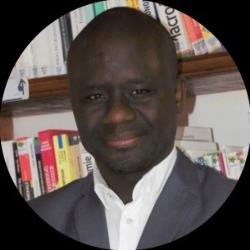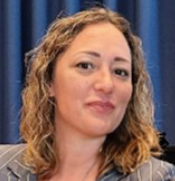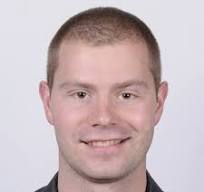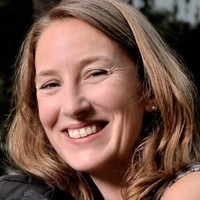Fostering hybrid curriculum for inclusive learning environments
UNESCO-International Bureau of Education
Session 276
An introduction to hybrid learning and digital education and a look at real-life examples from Europe and Africa
Even pre-COVID-19, education systems were encountering challenges in accommodating the diversity of learners' profiles, contexts, circumstances and abilities in educational policies, curriculum and pedagogy, as well as the processes of teaching, learning and assessment. The many innovative practices that were put in place during the pandemic to accommodate both in-person and distance learning, or e-learning, have given substance and impulse to new developments in hybrid modes.
As a result, countries are beginning to transform their teaching, learning and assessment methods. The future of new generations depends on the quality and relevance of their education so they can be protagonists in the construction of a sustainable, equitable and inclusive future. As the Transforming Education Summit concluded, there is recognition of the need to rethink the levels, arrangements, and learning environments of education to ensure the integration and complementarity of face-to-face and distance learning.
Through this session, presenters Omar Thiam, Project Officer from UNESCO-IBE and Aurélien Fiévez, Ph. D. Conseiller à la transition numérique, Fédération Wallonie-Bruxelles, aim to equip participants with a comprehensive, global understanding of the potential and challenges of hybrid learning. Participants will explore real-life examples from Africa and Europe, focusing on the integration of technology with in-person instruction and the development of blended systems to cater to diverse student needs and provide practical insights into implementing its core components.

Dr. Omar Thiam is a Programme Specialist at UNESCO-IBE, focusing on educational reform projects in Africa such as HELA, the Sahel Project, COC in Guinea, and Mother Tongue and Curricula. With experience teaching in Senegal and France, including at prestigious institutions such as Groupe ISM and the University of Savoie, he holds a doctorate in economics from the University of Grenoble. Thiam has consulted on strategy and educational development, contributing to UNESCO strategies in Dakar and Haiti. He played a significant role in Senegal's industrial policy action plan, emphasizing education and training. Thiam has created and developed numerous bachelor and master training programs and authored several articles on educational innovation and development in Africa.

Mallorie Trannois holds a Lawyer Diploma and a Ph.D. in Private Law, focusing on European online gambling harmonization. With an academic background, including professorships at the University of Panthéon-Sorbonne Paris I and IESEG Business School of Management, Mallorie has contributed widely to legal research and education. Her expertise includes aspects of law such as sports integrity and online gaming regulation. Mallorie's career demonstrates her commitment to upholding legal integrity, fostering global cooperation, and advancing education, through roles at UNESCO, the European Commission, and the UNESCO International Bureau of Education. Currently, as the Partnerships and Coordination Officer at UNESCO's International Bureau of Education, Mallorie plays a vital role in fostering collaboration and advancing educational initiatives worldwide. Her experience in academia and international organizations highlights her dedication to promoting legal integrity, education, and socio-economic inclusion globally.

Aurélien Fiévez, B.Ed, MA, Ph.D. holds a doctorate in Educational Sciences from the University of Montreal (Canada) with a specialization in the integration of information and communication technologies ( ICT), in educational psychology and teacher training. He also holds a Master's degree in Educational Sciences with a focus on teacher training and information and communication technologies (UMons) and a complementary master's degree in IT and innovation (UNamur). It is affiliated with the Interuniversity Research Center for Training and the Teaching Profession (CRIFPE) .
He is Associate Professor and head of Digital Strategy at HES-SO Geneva (Switzerland). At the same time, he is Advisor to the digital transition at the Wallonia-Brussels Federation (Belgium). His research interests focus on the integration of ICT in education, digital skills, integration models, teacher training and other areas related to Educational Sciences.

Amy has over 25 years of cross-sectoral experience in education development, including teacher-training, project management, advocacy, and grant-making. Her professional posts include project development at the British Council in Sri Lanka amid civil unrest, and contributing to UNDP's national poverty reduction strategy in Afghanistan. Following five years of advocacy and education consultancy in Uganda, she returned to Europe to work for a range of rights-based organisations, including as a Programme Officer for Open Society Foundations. She has engaged with diverse stakeholders in education policy-making, including national and sub-national education personnel, civil society organizations, and multilateral donors. Her professional interests primarily focus on promoting quality, inclusivity, and integrity within the field of education. She holds an MA in Literature and Language from the University of Glasgow and an MSc in Development Management from the Open University.
-
 C3. Access to information and knowledge
C3. Access to information and knowledge
-
 C4. Capacity building
C4. Capacity building
-
 C7. ICT applications: benefits in all aspects of life — E-learning
C7. ICT applications: benefits in all aspects of life — E-learning
-
 Goal 4: Ensure inclusive and equitable quality education and promote lifelong learning opportunities for all
Goal 4: Ensure inclusive and equitable quality education and promote lifelong learning opportunities for all